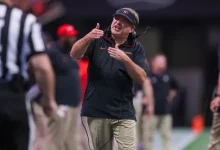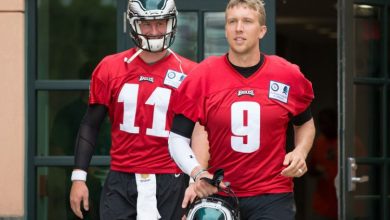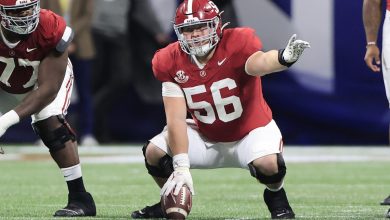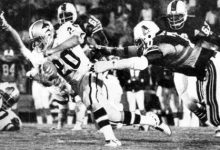What happened to Nick Marshall? Former Auburn dual-threat QB switched to defense, continuing his football career beyond college. Today, he’s pursuing professional opportunities while remembered for his dynamic Auburn days.
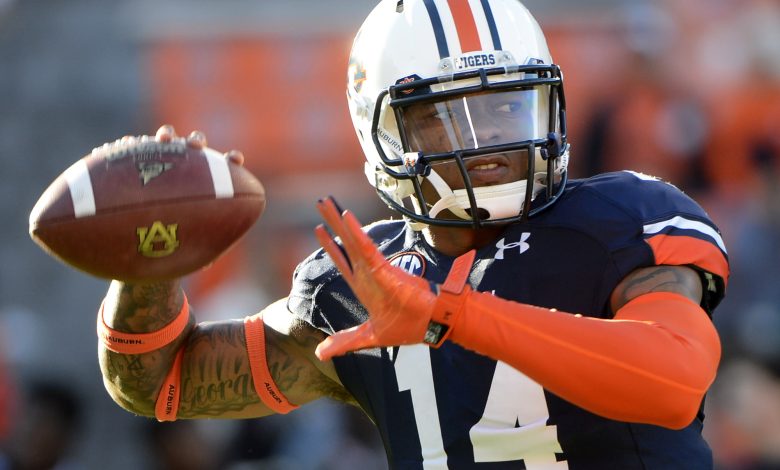
Nick Marshall is one of college football’s most intriguing athletes of the 2010s—a dual-threat quarterback known for his electrifying plays and versatility. His story is unique not only because of his impressive college career but also because of his unconventional path into professional football, where he reinvented himself as a defensive back. This article explores what happened to Nick Marshall after his Auburn days, tracing his journey through college football, his position change, his professional career, and what he is doing today.
Early Life and College Beginnings
Nick Marshall was born on June 4, 1992, in Pineview, Georgia. His athleticism was evident early on, and he developed as a multi-talented football player in high school. Despite his talents, Marshall’s initial path in college football wasn’t straightforward. He first enrolled at the University of Georgia, where he played as a cornerback—showcasing his defensive skills.
However, after his freshman year, Marshall encountered a setback. He was dismissed from the Georgia football program due to a violation of team rules. This abrupt end forced him to rethink his football career path. Instead of giving up, Marshall decided to transfer to Garden City Community College in Kansas.
At Garden City, Marshall made a significant shift. He transitioned to playing quarterback—taking advantage of his strong arm, quick legs, and field awareness to become a dual-threat signal caller. In his one season there, he amassed impressive statistics, throwing for over 3,000 yards and rushing for more than 1,000 yards. This performance caught the attention of major programs, eventually leading to his transfer to Auburn University.
Rise to Stardom at Auburn
Nick Marshall arrived at Auburn in 2013, immediately stepping into the starting quarterback role under head coach Gus Malzahn. His dynamic style perfectly fit Malzahn’s offense, which relied heavily on speed, versatility, and creative play-calling.
Marshall’s impact was immediate and profound. He led Auburn to an SEC Championship and guided the team to the 2014 BCS National Championship Game against Florida State. Throughout his two seasons as Auburn’s starting quarterback, Marshall displayed an exciting combination of passing and rushing ability. He threw for over 4,500 yards and ran for nearly 1,900 yards, combining for 34 touchdowns.
His dual-threat ability made him a nightmare for opposing defenses. Whether it was a designed quarterback run, a scramble, or a perfectly timed pass, Marshall kept defenses guessing. He earned numerous accolades, including being a semifinalist for the Maxwell Award (given to the nation’s best player) and finishing among the top contenders for the Heisman Trophy.
The NFL Draft and Position Change
Despite his college success, Nick Marshall faced challenges entering the NFL. Scouts expressed concerns about his size—he stood around 6 feet tall and weighed about 190 pounds—and questioned the strength of his arm and mechanics as a pro-style quarterback. Additionally, there was skepticism about how well his running ability would translate to the faster, more physical NFL level.
Understanding these concerns, and recognizing the difficulty of making an NFL roster as a quarterback with his profile, Marshall made a bold and unconventional decision: he would switch to playing defensive back. This was not entirely new territory, as he had played cornerback in his early college days at Georgia.
This decision was a gamble but also a smart career move. By transitioning to cornerback, Marshall could leverage his speed, agility, and football instincts in a position where those traits are critical. It required a complete overhaul of his skills and mindset, but Marshall embraced the challenge.
Professional Career
Nick Marshall went undrafted in the 2015 NFL Draft but quickly signed with the Jacksonville Jaguars as a defensive back. His time with the Jaguars was brief—he was waived before the regular season—but the signing was a clear indication that NFL teams were intrigued by his athleticism and versatility.
Marshall did not give up. Over the next several years, he bounced around NFL practice squads and offseason rosters, including a stint with the New York Jets. He also played for the Arizona Rattlers in the Arena Football League, which helped him continue to develop his skills as a defensive back.
Seeking more playing time and opportunities, Marshall eventually signed with the Saskatchewan Roughriders of the Canadian Football League (CFL). He played for the Roughriders for a couple of seasons, primarily contributing as a cornerback and return specialist. The CFL experience was valuable for Marshall, allowing him to compete at a professional level and continue his football career on a different stage.
Challenges and Adaptation
Marshall’s transition from quarterback to defensive back was not easy. The two positions require vastly different skills and mental approaches. As a quarterback, Marshall was used to reading defenses and leading the offense. As a cornerback, he had to learn to anticipate offensive plays, cover receivers man-to-man, and make tackles.
His resilience and willingness to learn were key factors in his ability to make this transition. Marshall worked tirelessly to improve his coverage techniques, footwork, and tackling ability. While he never became a star at the professional level, his journey is an inspiring example of adaptability and persistence.
Life After Football
After his playing days, Nick Marshall returned home to Georgia. While no longer playing professionally, he has stayed connected to football through coaching and mentoring. He has been involved in youth football programs and camps, sharing his knowledge and experiences with young athletes.
Marshall’s story serves as a powerful lesson for aspiring players: sometimes the path to success is not linear. His ability to pivot, overcome setbacks, and pursue his passion in new ways shows the importance of determination and flexibility.
Legacy and Impact
Nick Marshall will always be remembered most fondly for his thrilling quarterback play at Auburn. His dynamic style helped revitalize Auburn football and gave fans unforgettable moments on the field. His dual-threat capability was emblematic of the changing nature of college football offenses during his era.
Beyond the stats and highlights, Marshall’s legacy is also about his character and determination. Facing dismissal, position changes, and professional hurdles, he remained committed to football and reinvented himself to continue playing the sport he loves.
His journey is often cited as an example for players who face adversity or position changes, proving that with hard work and adaptability, it’s possible to carve out a meaningful career—even if it doesn’t follow the original plan.

